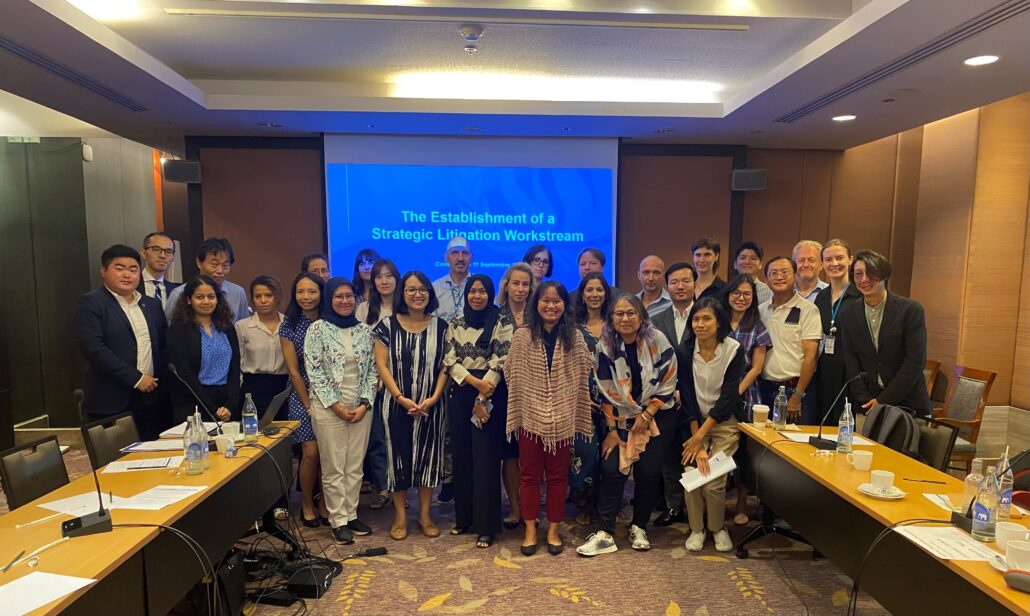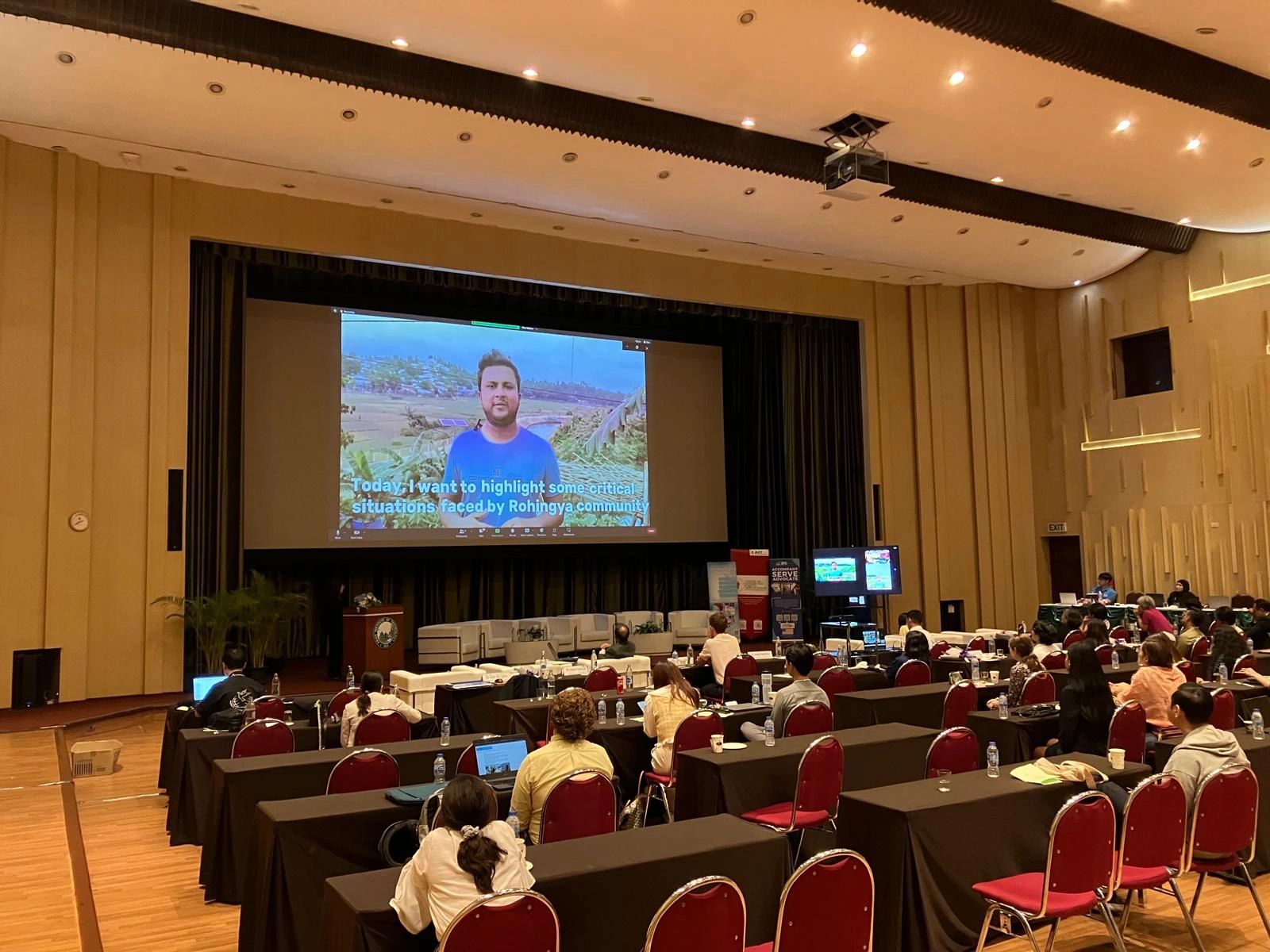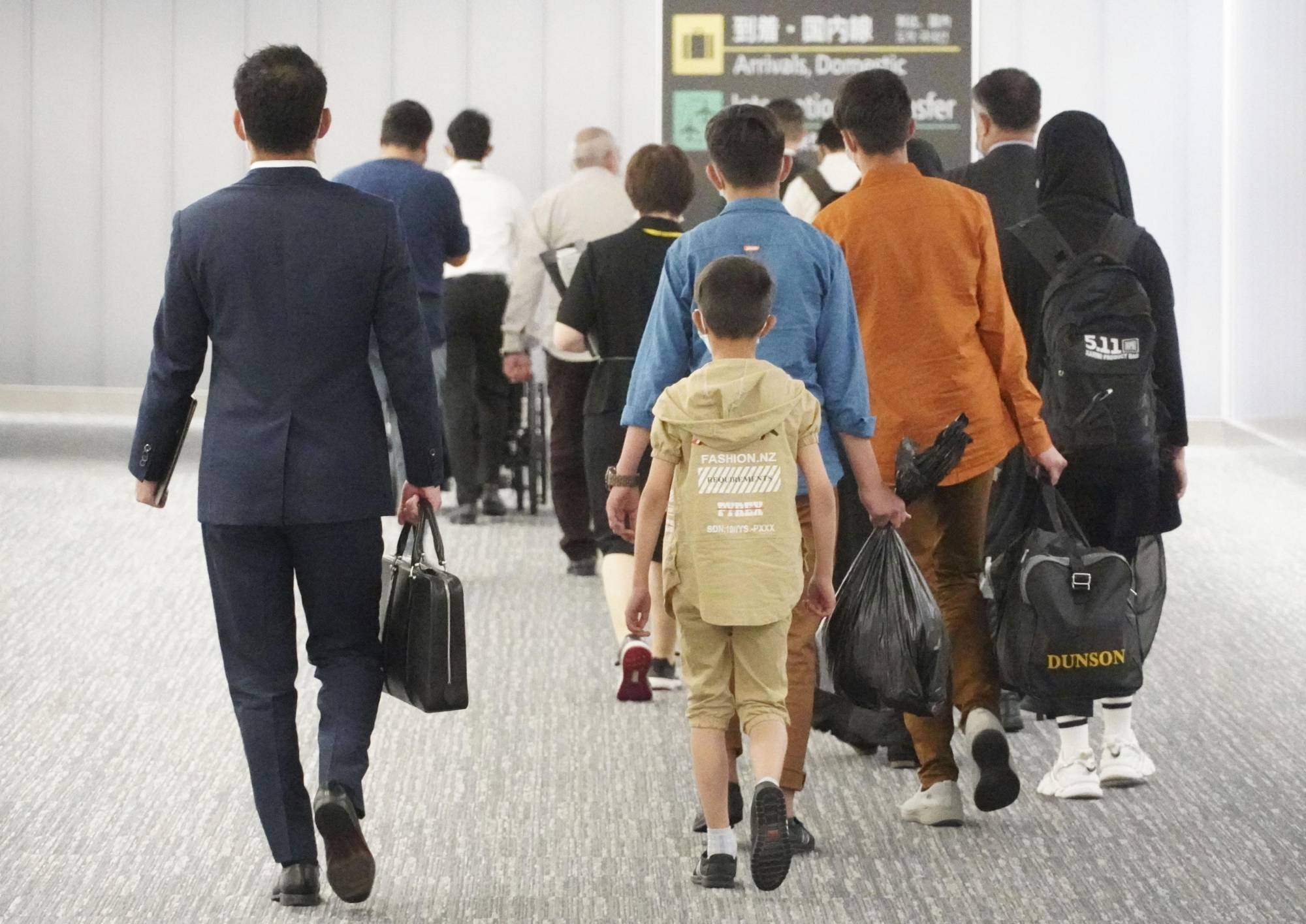Voice of America (VOA) -- Death of Uyghur Refugee in Thai Detention Stirs Condemnation
1 March 2023
A Uyghur refugee from China's Xinjiang region died of alleged police neglect this month at the Bangkok Immigration Detention Center, raising concerns about the treatment of the more than 50 Uyghur refugees who have been held at the center since 2014.
The victim was Abdulaziz Abdullah, 49. His son, Muhammad Abdullah, who lives in Kayseri, Turkey, said in an interview with VOA that his family had fled Xinjiang because of the oppression and the repeated arrests of his father.
"The Chinese police would arrest my father every year since 2009 whenever they started a Strike Hard [anti-terrorism] campaign," Muhammad told VOA.
"My father was a street fruit vendor in Urumqi. When the oppression was almost unbearable, my parents decided to leave the country and took us to Thailand," he said. "My father had said that he only wanted a better education and life for his children. That was his only dream."
China has long been accused of mistreating Uyghurs. The Office of the U.N. High Commissioner for Human Rights said in August that there was credible evidence that China had committed "grave human rights abuses" against Uyghurs and other Turkic Muslim ethnic groups in Xinjiang, including arbitrary detention, torture, forced sterilization, and cultural and religious erasure, which could amount to "crimes against humanity" under international law. The U.S. designated China's treatment of Uyghurs as genocide in January 2021.
China has repeatedly denied the allegations and contends that it is combating extremism, terrorism and separatism in the Xinjiang region.
Escaping China
Abdullah and his family fled China in late 2013 and, with the help of border smugglers, arrived early the next year in Thailand, where they were detained by Thai immigration authorities.
"My mother gave birth to my seventh sibling in that Thai immigration prison," Muhammad said.
In the summer of 2015, Muhammad, his mother and siblings were among nearly 170 Uyghur women and children taken by Turkey from Thailand on a humanitarian basis, while Thai authorities repatriated more than 100 Uyghur men to China. Rights activists said the men would face torture or other mistreatment for leaving China illegally.
According to Muhammad, his father and more than 50 adult Uyghur men remained in Thailand's immigration detention facilities
Eyewitness Account
A Uyghur refugee and former cellmate of Abdullah's at the Bangkok Immigration Detention Center spoke to VOA on the condition of anonymity because of fear of retaliation by Thai immigration authorities. He said that Abdullah had been transferred in December from a different Thai detention facility to the Bangkok center, where he developed a cough.
Abdullah started vomiting blood. Despite receiving repeated requests for help, police guards and the Bangkok IDC doctor neglected to take Abdullah to the hospital, his former cellmate said.
"They came into the cell and they took his picture. He was still vomiting blood while they were taking pictures of him," the refugee said. "They said they would report the situation to their boss and said they would take him to the hospital but left without taking him."
The Bangkok IDC police ignored repeated pleas to help Abdullah, the refugee said, and his condition worsened while he was held in a cell for mentally ill prisoners for eight days without medical attention.
"He would let his urine and feces out without knowing it," the refugee said. "On February 11, 2023, in the afternoon around 4 p.m., he lost consciousness, and the police were informed, but they did not come and only sent security contractors to his cell. When he was taken down to the first floor, he had already passed away."
Abdullah was not the first Uyghur to die in immigration detention in Thailand, according to the Uyghur refugee.
"He is the fourth Uyghur who died in Thai immigration detention," he said, adding that in 2018, another Uyghur refugee also vomited blood and died while in detention in Thailand.
Thai Response
VOA sought information from the Thai Embassy in Washington and the Thai Foreign Ministry about Abdullah's death. The embassy did not respond to VOA's email inquiry. The Thai Foreign Ministry did not answer VOA's call.
According to a report by the Bangkok Post, an anonymous source with knowledge of the case confirmed the death of a 49-year-old Uyghur asylum-seeker who had been detained for years. The source also stated that Thailand has provided all Uyghur asylum-seekers in its custody with essential items such as food and medicine.
Thailand's treatment of Uyghur refugees is a cause for concern, said Phil Robertson, deputy director of the Asia Division at Human Rights Watch.
"[Abdullah] lost his life because of Thailand's refusal to recognize the humanity of an asylum-seeker, someone fleeing persecution, and at the end, even failed to provide the medical care he needed," Robertson told VOA.
He called for renewed efforts from the international community to persuade Bangkok to release all remaining Uyghurs in custody.
"The quickest way to ensure the resumption of the lives of these men is to immediately release them as free men," he said.
Dolkun Isa, president of the Munich, Germany-based World Uyghur Congress (WUC), a Uyghur rights organization, has called for a full and public investigation into Abdullah's death.
"We have been closely following the situation since the beginning. The WUC has issued a report on their case and other similar cases," Isa told VOA. "Thai authorities should carry out a full and publicly available investigation into the death of Abdulaziz Abdullah, end the indefinite and arbitrary detention of the Uyghur refugee group, release Uyghur refugees detained in Thailand and allow Uyghur refugees to access resettlement."
Morgane Roussel-Hemery, associate external relations officer at the U.N. High Commissioner for Refugees office in Thailand, told VOA that the UNHCR has not been allowed into the Bangkok immigrant detention center to assist refugees in the facility.
"We have not been granted access and remain available to assist the Thai authorities in searching for a viable solution," Roussel-Hemery told VOA via email.
Recommended

20 November 2024
Strategic Litigation Network for the Human Rights of People on the Move in Asia and the Pacific
The Strategic Litigation Network for the Human Rights of People on the Move in Asia and the Pacific is a workstream of the Regional United Nations Network on Migration for Asia and the Pacific. Co-led by the Office of the United Nations High Commissioner for Human Rights (OHCHR) and the Asia Pacific Refugee Rights Network (APRRN), the Network fosters and supports strategic litigation in the Asia-Pacific region related to human rights in the context of migration and people on the move.

2 July 2024
A Message from the Cox's Bazar Refugee Camp
Khair Ullah, a Rohingya refugee and dedicated member of the APRRN Youth Working Group, shares the escalating challenges in Cox's Bazar refugee camp, including inadequate healthcare, insufficient rations, human trafficking, and lack of education.

23 August 2022
Japan grants refugee status to 98 Afghans fleeing Taliban rule
Japan has granted refugee status to 98 people who have fled Afghanistan since the Taliban returned to power last August, government sources said Tuesday, in a rare move for a country with a poor record on giving asylum.